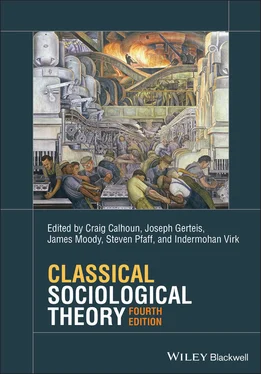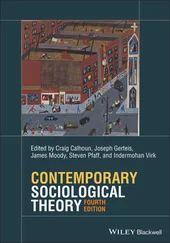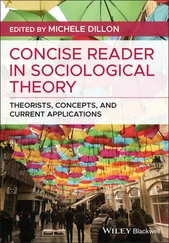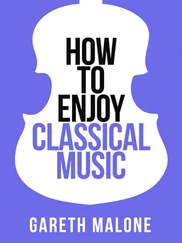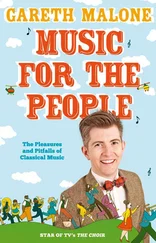Classical Sociological Theory
Здесь есть возможность читать онлайн «Classical Sociological Theory» — ознакомительный отрывок электронной книги совершенно бесплатно, а после прочтения отрывка купить полную версию. В некоторых случаях можно слушать аудио, скачать через торрент в формате fb2 и присутствует краткое содержание. Жанр: unrecognised, на английском языке. Описание произведения, (предисловие) а так же отзывы посетителей доступны на портале библиотеки ЛибКат.
- Название:Classical Sociological Theory
- Автор:
- Жанр:
- Год:неизвестен
- ISBN:нет данных
- Рейтинг книги:3 / 5. Голосов: 1
-
Избранное:Добавить в избранное
- Отзывы:
-
Ваша оценка:
- 60
- 1
- 2
- 3
- 4
- 5
Classical Sociological Theory: краткое содержание, описание и аннотация
Предлагаем к чтению аннотацию, описание, краткое содержание или предисловие (зависит от того, что написал сам автор книги «Classical Sociological Theory»). Если вы не нашли необходимую информацию о книге — напишите в комментариях, мы постараемся отыскать её.
Classical Sociological Theory — читать онлайн ознакомительный отрывок
Ниже представлен текст книги, разбитый по страницам. Система сохранения места последней прочитанной страницы, позволяет с удобством читать онлайн бесплатно книгу «Classical Sociological Theory», без необходимости каждый раз заново искать на чём Вы остановились. Поставьте закладку, и сможете в любой момент перейти на страницу, на которой закончили чтение.
Интервал:
Закладка:
Political participation is not just a matter of formal electoral processes, thus, but also of civil society organizations and social movements. For example, the US Constitution of 1789 excluded women and slaves, and allowed states to exclude working men who did not own enough property. This was not only unjust, but as Martineau emphasized, a contradiction within seemingly liberal democracy. It called for action and change. Centuries of social movements have struggled to extend democracy to all citizens – and often to increase equality. Movements exemplify the modern idea of people seeking to choose their ways of living in society together.
Revolutions could be celebrated as extreme examples of citizen choice about what kind of government to share. But revolutions also raised two troubling issues. First, there was always the possibility that a new government would be as bad as the old, and that ordinary people who supported the revolution would be excluded from control of the new government. The example of the Russian Revolution was widely seen to demonstrate this. Classical sociological theorists suggested that part of the issue was the power of underlying social conditions that might not support democracy even if most people wanted it. 14Robert Merton (excerpted here) generalized one dimension of this by pointing out how manifest functions – what seemed to be going on – might contrast with underlying, latent functions. The police might be intended to guarantee security, but instead guarantee property or privilege of some at the expense of the security of others. The revolution might be intended to increase freedom but by tearing down old systems of authority have the latent function of enabling new elites to take power.
This raised the second issue. While peaceful revolutions were theoretically possible, actual revolutions tend to involve violence. The French Revolution started in 1789 but by 1793–4 have become exceptionally bloody. Thousands were killed by the supposedly human guillotine. Many of those killed were themselves revolutionaries, not monarchists, but condemned by other factions of the revolutionary government. The issue has persisted as groups struggling against injustice or abusive governments question whether these can be changed by peaceful means. There is a tradition arguing that violence can be positive, even purifying. The classical sociological theorist Hannah Arendt (excerpted here) argued forcefully against this. Violence should ever be used to resolve political questions, she said, these always needed to be approached as matters of human action, including communication and debate.
Economies. Through much of history, production was mostly for the subsistence of those who produced it. Food was the dominant good, though craft products became increasingly important. With sedentary agriculture larger surpluses were produced – and mostly extracted to feed people in growing cities and support rulers in projects from majestic mausoleums to wars. Trade was initially as much a matter of ritual as material redistribution. Eventually, though, it linked cities and regions and flowed along some very long-distance routes. There was more wealth, more luxury consumption – like fine fabrics or elegant jewelry. But there was not any idea of the economy – as distinct from wealthier cities or rulers or indeed temples – and the political or military capacity to defend them.
The very idea of ‘ the economy’ is modern. The word comes from the ancient Greek term for household management. It was extended to thinking about other and larger enterprises. But the modern idea of ‘ the economy’ is a significant departure. It refers not just to decisions about investment and consumption, but about an overall system of relationships – buying and selling, of course, but also borrowing and lending, investing and management. These are increasingly organized in an impersonal credit and monetary system and through corporations in which management is a job separate from ownership – and owners can be other corporations, further abstracting away from individuals.
A key feature of the modern era has been the attempt to separate economics from politics. Weber called them different ‘value spheres’ – reflecting among other things the contrast between pursuit of the public good and pursuit of profit. One of the ideas of liberalism has been the notion that to protect freedom in each sphere, they should be free from each other. This is different from, say, a feudal system in which economic exploitation and political domination are organized directly by the same system of power and authority. Adam Smith thought government ‘interference’ in the economy could upset its ‘natural’ self-regulation. Karl Marx and Karl Polanyi both disagreed, holding that it was mistaken to think of the economy as natural rather than historically produced.
Classical economists formulated the idea of universal, natural economic laws in a 19th Century argument against state efforts to control export and import prices. The timing was surprising. In precisely the same period, the social impact of industrialization was so dramatic that observers called it ‘industrial revolution’ and classical sociologists showed that it changed society as much as political revolutions. 15Agriculture was industrialized first, leading to the decline of rural villages and the rise of cities.
Modern markets are vastly larger than earlier ones, and organize a much larger proportion of human activities. Modern society doesn’t simply have markets, as kingdoms, empires, and feudal societies elsewhere have had markets. It is structured in a basic way by markets. Moreover, continuous marketization has meant that activities previously organized in other ways have been reorganized on market bases – like paying for a nursing home rather than caring for aged parents at home. Of course, states could also provide care on a non-market basis, but the dominant trend has been ‘commodification’, the organization of production and provision as for monetized exchange. Property that was previously passed on through generations, like family farms, has been commodified.
The discipline of economics developed to understand this new phenomenon of large-scale economic systems. It was initially called ‘political economy’ largely to signal a concern with trade, production, and wealth at the scale of states not just households. Mainstream economics is not about state-dominated economies, but about private property and how to allocate it in decisions about consumption, savings, and investment. Though grounded in an idealized image of individuals making such decisions, it uses mathematics and statistics to address both larger scale and law-like patterns. Classical sociological theory engaged both the contexts and social organization of economic activity.
A classical sociological theorist as well as economist, Adam Smith (excerpted here) showed how manufacturing was transformed not only by new technology but new social organization. 16A coordinated division of labor was basic to every factory. This depended not just on management but on an ethic of work discipline, as Max Weber showed, and discipline was also necessary to investment: saving and reinvesting profits rather than only consuming luxuries. While Weber stressed this “spirit of capitalism” which he thought had religious sources. Karl Marx and Karl Polanyi both showed how labor discipline was more coercively enforced, by fear of poverty, the power of capitalists, and government regulation. Trade unions and socialist politics were socially organized responses. Work, management, and investment were all transformed by the rise of large corporations.
Evolutionary theorists examined the transition from the fixed statuses of premodern societies, where most roles were determined by gender, age, descent, and kinship, to modern societies with their range of roles based on individual attributes, achievements, or contracts. 17Adam Smith analyzed how new divisions of labor made work more productive; markets expanded as different people and whole countries had different things to sell. Herbert Spencer, one of sociology’s great 19th Century founders, saw differentiation as the key to social evolution, including the transition from ‘militant’ societies based on sheer power to industrial societies based on structures of cooperation. It was key as states branched out beyond simply exercising power through a military hierarchy, to undertake a range of different kinds of administration including eventually education, housing, and health care. Emile Durkheim (excerpted here) linked division of labor to ‘dynamic density’ – a matter not of physical crowding but of the number and complexity of transactions typical of modern society – and through this to social integration based not on similarity alone, but on relationships among people who were different from each other. Talcott Parsons continued this functional analysis by showing the relations of economic activity to other institutions, like education. He held that by the post-WWII era, problems of economic exploitation and disruption had been minimized; government policy combined with representation of workers through unions to produce a functional balance.
Читать дальшеИнтервал:
Закладка:
Похожие книги на «Classical Sociological Theory»
Представляем Вашему вниманию похожие книги на «Classical Sociological Theory» списком для выбора. Мы отобрали схожую по названию и смыслу литературу в надежде предоставить читателям больше вариантов отыскать новые, интересные, ещё непрочитанные произведения.
Обсуждение, отзывы о книге «Classical Sociological Theory» и просто собственные мнения читателей. Оставьте ваши комментарии, напишите, что Вы думаете о произведении, его смысле или главных героях. Укажите что конкретно понравилось, а что нет, и почему Вы так считаете.
